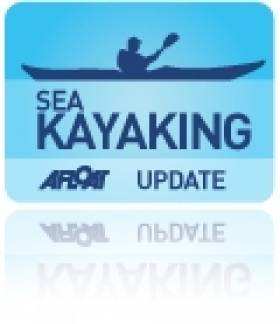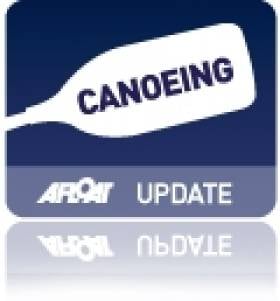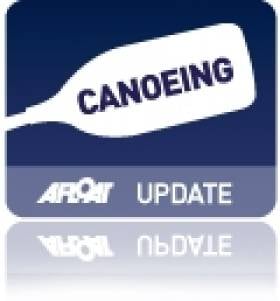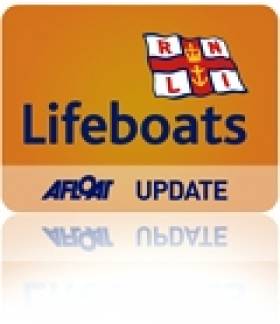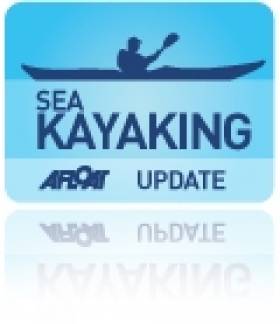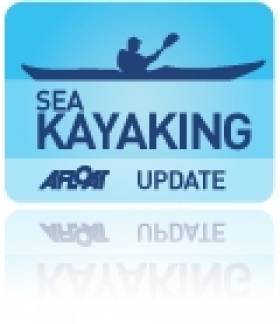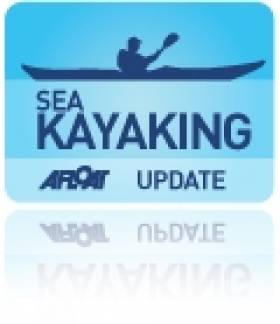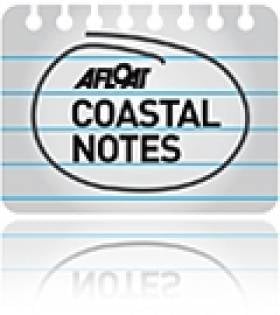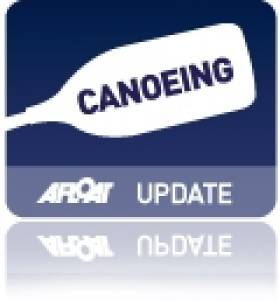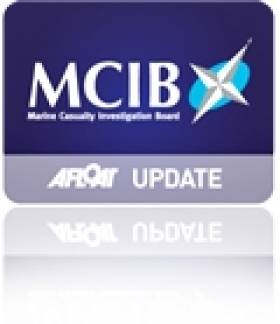Displaying items by tag: Kayaking
Sea Kayak Race on Bangor Bay Announced by Ballyholme Yacht Club
#kayak – Bangor town is steeped in maritime history and the local yacht club at Ballyholme Yacht Club hope this 'invasion' of kayaks will add a bit of colour to the annual festivities.
What's it all About?
Come along and have some fun. The race is planned to be a challenging and fun event for everyone. Sea kayaks, sit on tops and river kayaks are all welcome.
The Race
Will take place on the coastline between Bangor and Groomsport, starting and finishing at Ballyholme Yacht Club.
Classes & Prizes
Boats will be classed according to their overall hull length so large or small, there's a chance of winning. There'll be prizes for juniors and adults and it's hoped everyone will go away with something (even if it's just a warm glow!).
The Fun Side
Whilst we hope the race is competitive, we'd like to have a light hearted and fun day and so there'll also be prizes for the best dressed 'Pirate' paddlers in the race. So bring your bandanas, eye patches and jolly rodgers for a bit of craic.
Plan for the day
Registration will be at 12.30pm, followed by the race and then a BBQ & drinks at Ballyholme Yacht Club. More details are given when you sign up or have a look at the Course section on this site.
What do I need to do?
Sign up and pay the entry fee, enjoy the day and have a bit of craic! Read the race rules and click on the Enter Now link above or below.
Supporting the RNLI
The Bangor Bay Sea Kayak Race will raise funds for the RNLI and we would encourage paddlers to donate to the charity either on the day or through the donation facility on the booking form. You'd like them to be there when you need them so please give generously!
Costs
The entry fee is only £25 per kayak and includes a T-Shirt and the BBQ after the race.
Contact
All entrants will receive an email confirmation with a link to further details but if you have any questions about the race please email [email protected]
Sligo Kayak Training Courses For Anyone New To Canoes
#Kayaking - Beginners are more than welcome to the Sligo Kayak Club as it prepares to host a series of training courses for anyone new to canoes this spring and summer, according to the Leitrim Observer.
This Level 2 training course will provide prospective kayakers with the basic skills and safety practices they need to get paddling on the water.
And on completion of the course, participants can become full members of the Sligo Kayak Club and avail of further training opportunities.
The €80 course - the first of which begins next Tuesday 9 April - will run for two hours every Tuesday evening over six weeks, with a Level 2 skills assessment on the final week. Gear rental is covered by the price (except for wetsuits and suitable footwear).
The Leitrim Observer has more on the story HERE.
Paddlefest In Waterford & Kilkenny Next Month
#Canoeing - Canoeing Ireland is teaming up with the Canoe Association of Northern Ireland to host a joint Paddlefest in Waterford and Kilkenny on 6-7 April.
The conference centre at the HUB in Cillin Hill, outside Kilkenny, will be the centre of events for the weekend that Waterford Today says will feature competitions, workshops and "awe-inspiring displays" for canoeing, kayaking and paddling experts and novices alike.
Action on the waterways is open to all age groups and abilities, though with a focus on intermediate and advanced paddling skills.
Those taking part will be able to sign up for four workshops over the weekend hosted by top instructors and coaches.
More details of the weekend are available on the Canoeing Ireland website HERE. Registrations are open till this Friday 15 March so be sure not to miss out!
Portrush Lifeboat Rescues Stranded Kayaker
#RNLI - Portrush RNLI has rescued a kayaker who got into difficulty off the Co Antrim coast.
The volunteer lifeboat crew had an early call out on Sunday morning (17 February) to the kayaker who got into trouble on the water at West Bay.
There were strong southerly winds at time which caused a swell. The kayak capsized and was whipped by the prevailing wind into the harbour area, leaving the kayaker stranded and treading water.
A Portrush lifeboat crew member who witnessed the scene on the West Strand spotted the incident and promptly raised the alarm.
The inshore lifeboat crew - including Mark Mitchell as helm, Andy McClelland and Stevie Ritchie - launched within minutes and had the kayaker back at base within 20 minutes.
Portrush RNLI lifeboat operations manager Robin Cardwell said: "The kayaker was very fortunate as the winds were quite strong in the West Bay. Our volunteer crew launched quickly and was able to bring him back to shore safely."
Irish Duo Reach End of Asian Adventure By Kayak
#Kayaking - David Burns and Maghnus Collins yesterday celebrated the end of their 16,000-mile Silk Roads to Shanghai adventure across Asia by foot, bike, raft and kayak.
Ten days ago we reported that the duo were in Wugu on the Yangtze River, just 450km away from completing their epic 292-day journey from Istanbul to Shanghai - and becoming the first people to navigate Asia's longest river from source to sea by kayak.
But as Shanghai Daily reports, the Irishmen have reached their destination in one piece, and received a rapturous welcome from the city's Irish community at the Bund yesterday morning.
Burns and Collins, from Derry and Limerick respectively, negotiated the final leg of their charity challenge in sea kayaks, battling rapids and avoiding dangerous wildlife such as bears and wolves.
And on arrival in Shanghai they paid tribute to the kindness and generosity of the Chinese people they met along the way.
"Chinese people were incredible for the whole journey as they offered help everywhere," said Burns. "The fishermen gave us tea when we were cold and gave us food when we were hungry. We were well looked after."
Shanghai Daily has more on the story HERE.
Irish Adventurers First To Take On The Yangtze By Kayak
#Kayaking - Last April Afloat.ie highlighted two intrepid Irish adventurers on the first leg of a gruelling 16,000-mile charity trek across Asia - by foot, bike, raft and kayak - along the Silk Roads to Shanghai.
But as the New Year began last week - just over eight months later - the duo of Maghnus Collins and David Burns were just 450km away from completed their epic journey, as The Score reports.
Limerick man Collins told the sports website that he and Derry native Burns were at Wuhu, a city on the Yangtze upstream of Shanghai, and from where the pair will tackle the rest of the route along the river by kayak.
It's surely incredible enough that Collins and Burns ran the equivalent of 25 marathons in 27 days as they crossed Tibet to the source of Asia's longest river - but being the first ever kayakers to navigate the "incredibly dangerous" Yangtze from source to sea is almost beyond belief.
Little wonder, then, that they've so far raised €30,000 for Irish-based charity Self Help Africa, and will surely reach their target of €50,000 by the time they expect to reach the finish line this day next week.
The Score has more on the story HERE - and listen to an interview with Collins and Burns on Today FM's The Last Word with Matt Cooper (at the 41-minute mark of part 2).
Night Sea Kayaking Trips on Kinvara Bay This Winter
#SEA KAYAKING - Outdoors Ireland are running night-time sea kayaking trips on Kinvara Bay on Friday evenings over this winter and spring.
Beginning at 6pm each Friday, you can savour the sights, lights and sounds of Kinvara right on the water as you paddle by sea kayak through this southeastern corner of Galway Bay.
Paddle among deserted islands, listening to the abundant wildlife and possibly catching a glimpse of the gleaming eyes of friendly seals!
Moreover, witness the sight of the sparkling lights of Kinvara Town and the quietly impressive 16th-century Dungaire Castle.
With new sea kayaks, warm equipment provided and a local experienced guide, all abilities are catered for. This is an experience not to be missed next time you are in Galway.
The price is €50 per person for a three-hour kayak trip. For more details or photos please contact [email protected] or 086 860 4563.
Young Kayakers Recognised at NI Clean Coast Awards
#COASTAL NOTES - A group of young kayaking enthusiasts from Northern Ireland have taken the top spot in their category at the Coca-Cola Clean Coast Awards, as the Coleraine Times reports.
The Causeway Coast Kayak Association comprises 150 young people learning canoeing and other skills on the Causeway Coast in North Antrim.
They were recognised for their involvement in coastal cleanups around Ramore Head and along inland waterways such as the rivers Roe and Bann.
NI Environment Minister Attwood, who was on hand to present the award, said: “It is great to see community and youth groups taking pride in their own neighbourhood and doing something about littering which is such a blight on our coast and around our inland waterways.”
The Coleraine Times has more on the story HERE.
Donegal Man Runs, Cycles, Swims and Kayaks Across Ireland for Charity
#KAYAKING - A fitness instructor from Donegal recently raised funds for a Parkinson's charity by crossing the north of Ireland from east to west with an extraordinary combination of running, cycling, swimming and kayaking.
As the Donegal Democrat reports, James McIntyre spent a weekend traversing the island of Ireland from Newcastle in Co down to Creevy in Co Donegal.
His route that included a mountain run across Sliabh Donard and the Mournes and a cycling portion from Annalong to Enniskillen, before he took to the water for a 35km kayak run along the length of Lower Lough Erne to Beleek and a swim across Assaroe Lake.
McIntyre covered 201km altogether in his epic challenge to raise funds for research into Parkinson's disease, an illness that affected both his and his partner's grandfathers.
The 37-year-old surf lifesaver is no stranger to such efforts, after completing an open sea swim of Donegal Bay last year, also for charity.
The Donegal Democrat has much more on the story HERE.
#MCIB - The Marine Casualty Investigation Board (MCIB) has recommended that the Government review standards for activity centres involved in marine sports, following its report into an incident off Co Louth in May 2011.
Seven sixth-class pupils from St Brigid's Girls National School in Glasnevin were stranded in the water when their kayaks capsized in rough conditions near the Neptune Outdoor Centre in Clogherhead on 26 May last year.
Six of the girls were rescued by the RNLI Clogherhead lifeboat, while a seventh who had been separated from the group managed to reach the shore with some difficulty. No injuries were reported in the incident.
Among its findings, the MCIB concluded that as it had no official affiliation with either the Irish Sailing Association or the Irish Canoe Union, the Neptune Outdoor Centre - which has since ceased trading - was effectively unregulated with no monitoring of staff or operations.
It was also found that the instructor on the day had no formal qualifications in taking charge of a group of young people on the water, despite many years of experience in marine sports.
Moreover, there was no support boat available to mount a rescue attempt, a number of the pupils involved had ill-fitting buoyancy aids, and the weather conditions at the time of the incident were not conducive to taking a group of novices out on the water.
It was noted that some of the pupils involved credited a water safety course with helping them to take the right course of action when in the water, such as staying with their craft and floating with the waves on their backs.
The MCIB recommends that the Minister for Transport, Tourism and Sport reviews the existing arrangements for marine-based activity centres, and in particular develop standards for safety management (including weather checks, pupil-to-teacher ratio, etc), safety equipment (lifejackets, VHF radios, etc) and instructor qualifications.
The full report is available as a PDF from the MCIB website HERE.



























